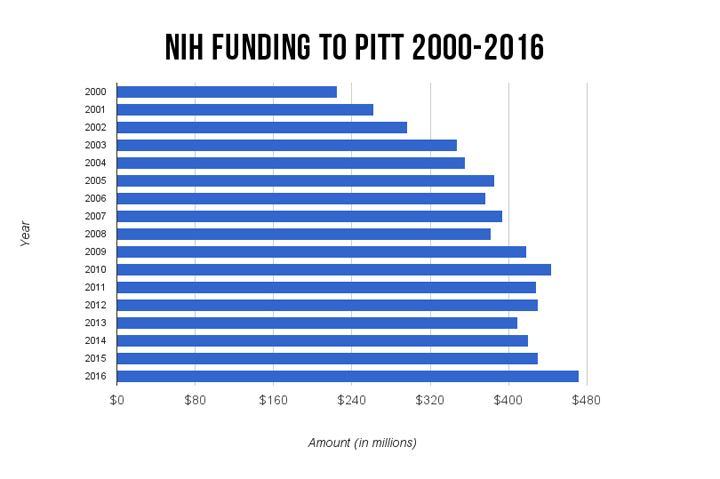Armed with $7.7 million in federal funding, researchers at Pitt announced on Tuesday the opening of a new research center to find treatments for prostate enlargement and urinary tract infections.
The O’Brien Urology Cooperative Research Center, funded by the National Institutes of Health, will research new treatments for benign prostatic hyperplasia –– commonly called enlarged prostate –– and lower urinary tract symptoms, Pitt said in a press release.
The Center will be comprised of two main “cores”: the Administrative Core and the Tissue Resource and Morphology Core.
The Administrative Core, headed by Zhou Wang –– Pitt professor and director of urological research in the Department of Urology –– will provide administrative support to the researchers by reviewing and selecting projects as well as encouraging collaboration across departments.
The Tissue Resource and Morphology Core, headed by Dr. Rajiv Dhir –– professor of pathology at Pitt and chief of pathology at UPMC Shadyside –– will provide human tissue specimens and animal tissue processing to the researchers.
The money the NIH granted Pitt is likely to be just a small piece of what the University will receive this fiscal year. In fiscal year 2016, for example, Pitt received $471,524,040 in funding from the NIH with 1,039 awards. Of these, 28 awards — totalling $46,360,708 — went toward research centers.
Similarly, in 2015, Pitt received $430,310,349 in funding from the NIH with 953 awards, including 26 awards totalling $59,503,736 for research centers.
According to the NIH website, Pitt ranked as the fifth highest recipient of NIH funding in 2016 and has been among the top ten recipients since 1998.
There are currently three projects planned for the Center, according to the release. The first will be led by Dr. Naoki Yoshimura –– professor of urology, pharmacology and cell biology, and director of neuro-urological research at Pitt –– and will investigate the effects of prostate inflammation on nerves.
The second study, led by Wang, will look into the effects of inflammation on cellular junctions and the proteins working in those junctions.
The third planned study will research the effects of nonsteroidal anti-inflammatory drugs as treatment and prevention for prostate enlargement and lower urinary tract symptoms. It will be led by Donald DeFranco –– Pitt professor and vice chair of medical education and associate dean for medical student research at Pitt.
“There is an urgent need for new approaches to prevent and treat BPH,” Wang said in the release. “Although BPH is generally not life-threatening, its treatment is associated with side effects and is very costly.”


